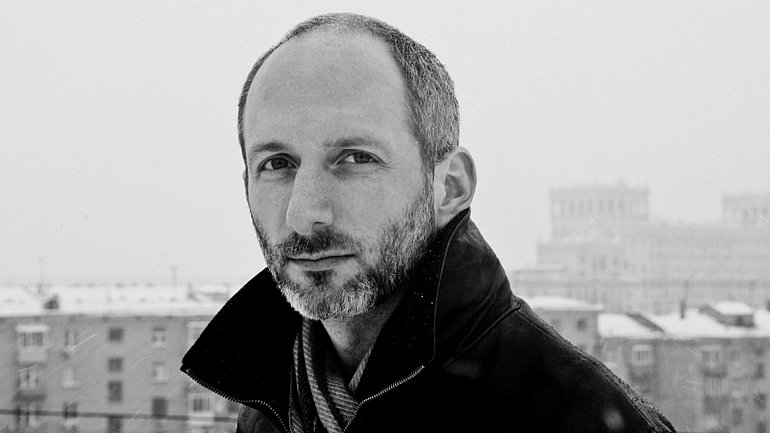“Support for Putin has more to do with Russian's social lives than with politics”
In their book “Putin v. the People: The Perilous Politics of a Divided Russia”, political scientists Samuel A. Greene and Graeme B. Robertson shed some light on the relationship between the Russian people and their president and try to explain why support for Vladimir Putin is so strong.

The market seems to be crowded with literature on Russia in general and Putin in particular, in what way does your book provide a new spin on the topic?
I think there is a good reason for that; it shows Russia is on people's minds. It was a country that people were not paying as much attention to, as we should have been. What we wanted to do was to shift the focus away from the perception of Vladimir Putin being this mastermind behind everything that is going on in Russian politics. We wanted to tell the story about why we should be paying attention to everything other than what is supposedly going on inside Putins mind. We wanted to flip it around and focus more on the societal factors, which enable his power.
What appeal does Putin or rather the system he put into place have for the people in Russia?
When we ran the last round of in depth interviews just before Putin was re-elected, almost everybody we talked to was going to vote for him. At the same time, it was impossible to find anybody who was actually happy with the way the country was governed. There has been a process over the last 30/40 years in which Russians have learned to live without the State. The presence of somebody like Putin in their lives is much more of a symbolic presence than a material. Residents, who are feeling better off economically are more likely to vote for the incumbent, that was the case with Yeltsin and Putin, but Putin's approval reigns were highest at a time post Crimea.
At this point, ordinary Russian's incomes are in real terms about 10 per cent less than they were before the annexation, and yet for most of that time, Putin's approval ratings were very high.
In many ways, the crisis in Ukraine in 2014 marked a turning point for Russia. How would you say that Russian society changed after that?
People watched more television as a result of the annexation of Crimea, particularly the news, which at that time was a lot more focused on Ukraine, not just Crimea but the war in Donbass as well. They started to talk more about politics with their relatives and friends. This combination of media coverage and conversation with their social circles created emotions, which then changed people's outlook on everything including Putin.
We ran surveys just four months before the annexation of Crimea and three months afterwards, surveying exactly the same people. Not only were they more supportive of Putin but they were more likely to be optimistic about the economy despite the fact that the economy was declining. They felt there was less corruption, even though there was no evidence for that. They were even more positive about the past, namely the 1990s, which was a difficult period for most Russians. Something was happening that was making people more emotional about their connection to Russia as a political community, and Putin, as a symbol of that, became much more positively viewed as a result.
You wrote that people who display certain personality traits, are more likely to support Putin. What role does psychology play in Russian politics?
One of the personality traits many people share is agreeableness, which psychologists describe as being kind of sensitive. It is about minimising social friction and getting along with people around you. We found out that support for Putin was very clearly associated with that. This trait shapes people's media preferences. The reason that most of us read the news or watch television is because we want to know what people are talking about. More agreeable people were more likely to watch Russian State television because that is what most other people were watching, taking on the messages that the Kremlin was pushing through. However, the important connection here is not between these agreeable Russians and Putin, but between them and other Russians. The factors that are supporting Putin have much more to do with Russian's social lives than with anything intrinsically political.
Putin constructed the system around his persona, which leaves many wondering what might come after him. Can there ever be someone like a second Vladimir Putin?
Putin's role in this system has two aspects to it - one, to manage the relationship with the elite, and two, to manage the relationship between the system and the people. None of these elites, namely the oligarchs and bureaucrats, are supported by ordinary Russians, who see them as thieves and parasites. The system needs both in order to survive and Putin is providing the political connection between them. So once he goes, the incentive for the system would be to try to find somebody who manages those two groups right. Putin, who has been finding a way to rule without being President, has undermined many of the formal institutions of Russian politics and personified those within himself. There is no guarantee that any successor would actually have the trust of the elite, or that they can win an election. So I think as Putin is healthy and available, even if he is not President, the trust from the elite and the trust from the population will continue to flow in his direction.
The interview was conducted by Heinrich Jakunin, student assistant in communications at ZOiS.
Dr Samuel Greene is Director of the Russia Institute at King`s College London and a Reader in Russian politics.
Samuel A. Greene, Graeme B. Robertson (2019): Putin v. the People: The Perilous Politics of a Divided Russia, Yale University Press